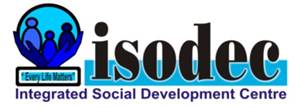Lack of medications, equipment, and unhygienic conditions at health facilities in the Northern Region have been identified as barriers to quality healthcare for pregnant women and new mothers, a study has found.
The study has also identified long waiting periods to access health care and abusive behaviour from some health staff as also impacting negatively on the quality of care offered pregnant women and new mothers.
The quality of care study, which was conducted in November 2018, investigated the perspectives of women between 19 to 40 years toward quality of care in five health facilities in the region.
The study was released at a meeting in Tamale attended by nurses and midwives from selected health facilities in the Northern, North East and Savannah Regions and representatives of health directorates in the regions as well as the Ghana Education Service (GES) and the Department of Social Welfare.
The meeting also discussed sexual and reproductive health issues affecting adolescent girls as contained in a manual developed by the Savana Signatures, which shared issues and experiences of teenage pregnancy in the regions.
The study was conducted by the Savana Signatures as part of its implementation of the Technology for Maternal and Child Health (T4MCH) project, funded by Global Affairs Canada to contribute to a reduction in maternal and child mortality in the country.
According to the study, even though women expressed confidence in the skills of health staff, lack of medicines and equipment such as ultrasound machines at health facilities meant that they had to go outside the facilities for such services, which took a toll on their pockets.
The study recommended the need for health staff to focus on health literacy by giving adequate information to clients, and increase hygiene and maintenance of health facilities to ensure quality of care for pregnant and nursing mothers.
It also called on the Ghana Health Service (GHS) to increase effectiveness of health care through recruitment of more staff and offer continuous professional development to nurses and midwives to improve quality of care for pregnant and nursing mothers.
Midwives amongst other participants suggested that health staff should be punctual to work such that clients would not wait for long to be attended to and also be patient to listen and understand the concerns of clients to offer them better health care.
In the area of sexual and reproductive health for adolescent girls, they suggested the need for adolescent-friendly facilities such as corners to be created at health facilities to discuss their issues with health staff for adequate care.
Mr Alhassan Abukari, North Gonja District Director of Health, said the GHS would continue to work with Assemblies to help improve on its infrastructure to better serve clients.
Mr Abukari said several measures were in place to monitor health staff’s attendance to work to ensure that they were always present at the facilities to attend to clients.
Miss Ethel Emefa Ehla, Project Officer at the Savana Signatures, expressed the need for the GHS and GES to adopt the manual to be used for their activities to help curb teenage pregnancy.
Source: GNA














